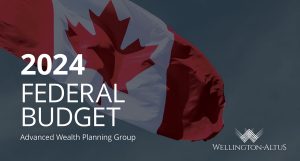Since mid-March, many Canadians have transitioned their businesses, altered their professional practices or began working from home almost exclusively. As Canadians are meeting clients, keeping in touch with patients or peers virtually from their homes, are they entitled to claim home office expenses as a tax deduction?
As with all tax matters, it depends. The characterization of earned income and the terms of employment impacts the types of home office expenses that can be deducted.
Let’s consider the following:
1. Are you self-employed, meaning a sole proprietor, partner or practitioner in an unincorporated business or practice?
For sole proprietors, partners or practitioners, home office expenses would be reflected on Form T2125 “Statement of Business or Professional Activities” and included in their annual Income Tax and Benefit Return (T1).
For unincorporated farmers, home office expenses would be reflected on Form T2042 “Statement of Farming Activities” and included in their annual Income Tax and Benefit Return (T1).
For unincorporated fishers, home office expenses would be reflected on Form T2121 “Statement of Fishing Activities” and included in their annual Income Tax and Benefit Return (T1).
The aforementioned forms are used to report income for tax purposes from a business or professional practice, farming or fishing activities and all include a section to reflect business use of home expenses.
Potential home expenses include:
- Interest (including mortgage)
- Insurance
- Rent
- Repairs and Maintenance
- Property Taxes
- Utilities
Home office expenses must be “reasonable” and generally are pro-rated based upon home office to total square footage of the home, or where specifically incurred for the home office.
For further guidance and how to complete these forms, please refer to Guide 4002 “Self-employed Business, Professional, Commission, Farming and Fishing Income,” and Guide RC4070 “Information for Canadian Small Businesses” on Canada.ca.
2. Are you an employee and paid a salary, and/or commissions?
For employees, S.8(13) of Canada’s Canada allows the deduction of certain expenses related to “Workspace in the Home.” The ability to deduct and the types of home office expenses that can be deducted is more restricted for employees.
For home office expenses to be deductible, the employee is required to pay for home office expenses and is not entitled to reimbursement by their employer, and one of the following two conditions relating to an employee’s home office must be met. The employee’s home office must be:
- Where the individual (employee) principally (greater than 50%) performs the duties of their employment; ou
- Used exclusively for the purposes of earning income from employment and is used on a regular and continuous basis for meeting customers or other persons in the ordinary course of performing the duties of their employment.
As many Canadian employees, depending upon their province of residence, have not been in their work office since mid-March and will likely not return to their offices until 2021, the first condition will be met by most.
If an employee fails to meet the first condition, they can look to the second condition which is more difficult to meet from a CRA administrative standpoint. For the second condition to be met, the home office must be used exclusively to earn income, meaning not shared with a spouse or used as a spare bedroom. CRA in the past has also viewed “meeting” customers or other persons as only a face-to-face, or physical, encounter. In light of COVID-19 social distancing measures put in place across Canada, many are hoping CRA will expand their view of “meetings” to include phone calls and virtual meetings as well.
Last month, CRA made several administrative announcements pertaining to employer expense reimbursements ($500 threshold for home office equipment and automobile related expenses) and what is not to be reflected as a taxable benefit, here’s hoping they will expand the definition of a home office for 2020 as well.
To claim home office expenses, employees need Form T2200 “Declaration of Conditions of Employment” completed by their employer. Form T2200 confirms the terms of their employment and they are required to pay for their employment expenses, including those related to their home office. Form T2200 does not have to be submitted with the employee’s T1 but should be kept on file in case it is subsequently requested by CRA. It has been suggested for 2020 to tweak the T4 “Statement of Remuneration Paid” slip by including a box for employers to check indicating work from home expenses can be deducted, as appropriate.
Home office expenses, along with other employment related expenses, are reported on Form 777 “Statement of Employment Expenses” included with an employee’s T1. Home office expenses such as utilities – electricity, heat, water – security, rent (if the home is not owned), repairs and maintenance, and supplies that are not reimbursed by the employer can be claimed on a reasonable basis. The total amounts of such expenses are reflected and the pro-rata portion or specific expense relating to the home office space can be deducted. For those employees who report commission income, additional home office expenses such as insurance and property taxes can be claimed. As always, Canadians should reach out to their tax advisors to discuss and confirm their particular situation.



